Updated 3/22/20.
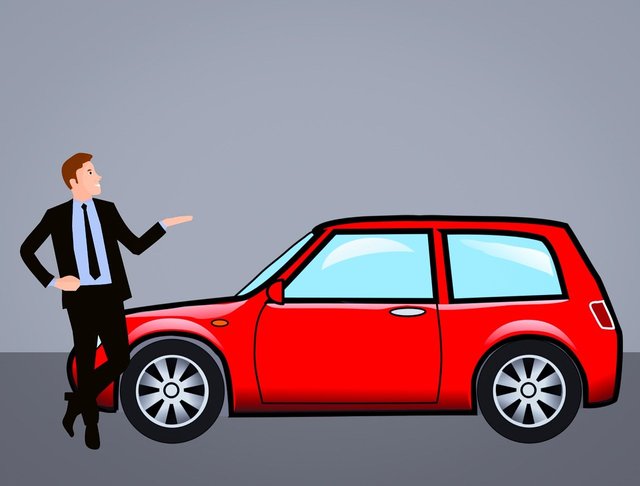
Having just gone through the trials and tribulations of a used car search, and talked to various people, here are my suggestions in looking for a used car. I was specifically searching for a car that had good gas mileage (MPG) and was no more than $2,000. I chose that limit both because of a limited budget and I knew that the chances were very slim that I would find a car that didn't need a significant amount of repairs done so I needed to hold back the rest of my money for those repairs, without being hit by very expensive repairs (transmission, engine rebuild, non-cosmetic body damage that affects performance or destabilizes the car, etc.), let alone other types of problems such as a title with a lien, a stolen vehicle, and vehicle scams. I was looking for a car that had sufficient space for my 2 kids and me, as well as groceries and enough trunk space to allow for travel. I wasn't terribly interested in what it looked like, so I didn't limit my search by color, body type or body condition, although I steered away from anything with significant rust (in terms of amount and location), or vehicles that typically get lower gas mileage (SUVs, trucks, full-sized sedans and vans), or don't have enough seating (sports cars) or are generally not as comfortable (jeeps).
After you finish this article, the most important things you should remember are: don't let yourself be pressured or otherwise manipulated, and ALWAYS do a pre-purchase inspection.
I got recommendations on which brands to look at and which to avoid, telltale signs of problems, and other things from multiple sources, including mechanics. Please don't misconstrue this as expert advice. Although I did talk to experts, I am not and this article is not all-encompassing. Nevertheless, I hope it helps you in your search!
If you're an expert, I'd love your feedback on this article!
Money & Inspections

Please keep in mind that spending more on a car won't necessarily mean you'll get a better deal if you don't know how to diagnose problems and don't do a pre-purchase inspection. You're better off spending that money on inspections (prices tend to range from free to $100/hour), because even $100 spent on it is better than thousands spent on fixing a bad car. Of course, if you've got the money to spend, and you are willing to do your best to avoid "lemons" and pick based on wise decisions rather than whims and superficial preferences (color, body design, stripes, etc.), you will probably get a better car for $10,000 than $5,000, and the same is true for $5,000 versus $2,000. I certainly would've preferred to spend more and get a better car if I could have! Smart shoppers can get a really good deal if they're patient and careful. As a rule of thumb, if you're spending $1,000 or less, expect to pay 1x-5x that amount on repairs. If you're spending $2,000, expect to pay .5x-3x on repairs. If you spend closer to $5,000, unless there are major repairs to do (transmission, chassis, engine rebuild), you'll probably spend $1,000 or less to fix it. If you spend more than this, you're much less likely to be paying for repairs but remember that there are dealers AND private sellers who charge high prices for cars that look good but have hidden problems. The first car I ever bought was a Ford Escort. I got it at dealership and my dad went with me. When we got in, it smelled pleasantly of coconut. The salesman said it was just air freshener. After buying it, I found out what and why. The heater core was broken and leaking onto the passenger's feet area, and they had put down some coconut tanning creme to mask the smell. The dealership denied responsibility, of course. The lying and covering up of problems is common with some dealers. Remember that just because a car looks good doesn't mean it isn't a mess. Again, NO MATTER WHAT THE SELLER AND HIS/HER MECHANIC SAYS, do a pre-purchase inspection!!!! NEVER ask them where to go, and don't take it to a mechanic nearby as they may have a secret deal. I made the mistake of trusting the seller and her mechanic despite warning signs (the smell of burned oil, a squealing sound when the vent fan was on, oil on the outside of the engine), and it has cost me $700 so far, with further repairs that I put off. If given a choice, take the more expensive inspection because it'll give you a more complete report. Skimping on the inspection could cost you hundreds or thousands later.
Research

If you really want to improve your chances of getting a good car, research cars to find ones with low repair rates, reasonable maintenance costs, high gas economy, lots of storage, lots of seating or whatever it is that is important to you. Find out which makes and models to avoid because they break often or explode when sneezed on. ;) I would suggest paying attention to unscheduled repair frequency and cost, maintenance costs (compare so you know what's high and what's normal), gas mileage (MPG/KPL), reliability and safety, along with whatever other criteria you have. Don't worry about color. Go to Kelley Blue Book as a starting point. There, you can see a limited selection of cars available, often with a full report on them, ratings, reviews, an estimate of what their price should be, and more. From there, you can branch out to some of the other shops that list vehicles online. Also be sure to look at sites that write about, but don't sell, vehicles.
Look at Car Complaints to find out about the specific year, make and model you're interested in. It turns out that the 2003 Ford Focus, if I'd known about this site, is considered a clunker and has tranny problems.
Another place to look at specific vehicles is Dashboard Light.
Aside from KBB, you can also look at Car Gurus. Their values tab will give you pricing info.
Should I Shop at Used Car Dealerships?

"Buyer beware" applies equally to dealers and private sellers. Buying from a dealer can be a good idea, but...These days, there's not a big profit margin in new cars, so there are a lot more used car dealerships than I remember there being in the past. In addition, many of them buy from car auctions.
They will charge far more than private sellers and some are highly unethical (the same can be true of private sellers, of course!). Legally, I'm pretty sure that most states require a dealer to reveal any problems they know about for a car they sell but, from personal experience, some don't do that. I've had dealers tell me there was nothing wrong with a car I was interested in but, when I went to their lot and looked at it, I not only found that it had problems but that it had a significant and obvious problem, as well significant cosmetic damage inside. Other cars that they represented as being good also had problems that they only admitted to after I pointed them out. To be fair, though, they agreed to make certain repairs for one car if I would buy it for $2,000. It was still a piece of junk that wasn't worth half that, though.
However, the advantage - if money really isn't an issue - is that dealers offer a variety of cars in one place, can potentially get you financed, although you're probably better off getting a loan from your credit union or (blech) bank, which means lenders fees added to the bill, and some dealers are very trustworthy. In addition, some can get you hooked up with insurance and even "gap" insurance, which covers the difference between what your insurance company decided is the value of your totaled car (the total cost of repairs exceeds their estimate of the vehicle's value, thus a "gap") , and what it really is, so you'll get far more back if your car is wrecked than if you don't have gap insurance. That said, just because they can get you signed up doesn't mean they have access to the best insurance company or the best prices, so you're best off doing research ahead of time on car insurance. Some of the higher-end dealers will return cars with serious issues to the auctioneers, but they'll fix lesser problems and sell the cars.
What about Car Insurance?
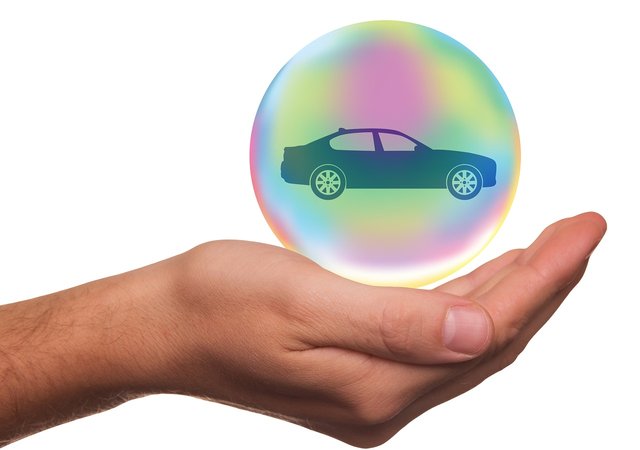
There are a lot of choices out there - more than are advertised - and it can be pretty confusing. Should you get liability or full coverage? (full) Does full coverage always mean you'll get all the money for your car? (not necessarily) Are the companies I see advertisements for all the time the best? (mostly they are average (or worse) although Geico tends to rate well) I'm not an expert on car insurance, and it really depends on which state you're in as to which companies are the best. Different places rate them differently, plus new companies (like Root) are less likely to have ratings in comparison articles and by companies. The challenge is to figure out which articles and companies are biased, and which give the truth. Also, check to see if your state requires car insurance. Of course, if this happens to you, insurance won't matter to YOU...
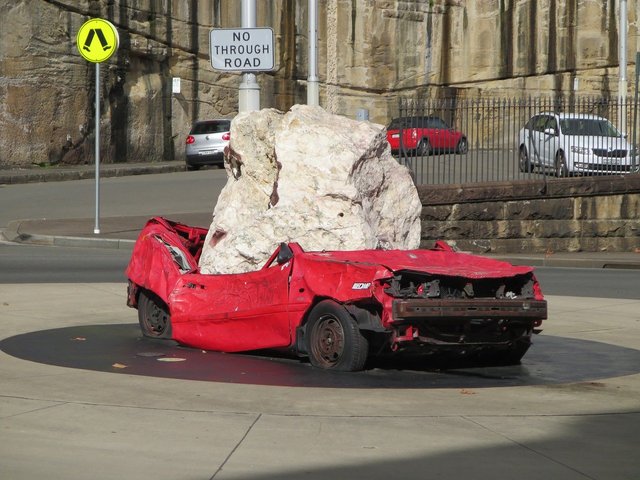
- BE PATIENT WHILE SEARCHING AND DON'T WAIT UNTIL YOU'RE IN A RUSH TO FIND INSURANCE! I'm fairly sure that needs no clarification.
- Famous ≠ BestJust because it's famous doesn't mean it's the best choice. Some of the best insurance companies rarely advertise. For example, have you heard of Erie Insurance? In my part of the US, it's one of the best. For military and vets, USAA is absolutely the best.
- Do your research Before you buy, check these resources. None of them are exhaustive, though.
- To find out a company's financial strength (unless they're too new), search the AM Best website because financial strength is an indicator of how able the company is to pay out, but remember that it doesn't mean that company WANTS to pay out - some financially strong companies are like that because they avoid paying out as often as possible. Honestly, if the company is A or A++, you're fine.
- JD Power does comparisons and rates many companies, including car insurance, so be sure to take a look. I found their info, which usually includes AM Best info, to be useful. For example, these articles might be of interest:
- U.S. Auto Claims Satisfaction Study (2019). This article provides a lot of useful info.
- 2019 Auto Insurance Study (companies have different ratings per region) It's a little bit confusing because you have to search for your state visually (ctrl-f doesn't work since the states are listed in images, not text) and sometimes your state isn't in the region you expect, but it's one way to see which companies hold the highest rankings in your region.
- U.S. Insurance Shopping Study offers customer satisfaction ranking for only 21 companies, so it's not as useful as the previous one.
- Insurance Shopping Study (2019) has some useful info, but it's only for 20 companies.
- Where you live determines which insurance companies you can be insured by, and how well a company performs in a given region is not consistent with other regions it operates in.
- The NAIC (National Association of Insurance Commissioners) offers useful information on insurance companies to help make decisions.
- Look at whether they offer extra benefits compared to other companies, or whether you can get a package deal from them (e.g. vehicle + renter's/homeowner's).
- Certain companies, like USAA, specialize in specific groups. USAA helps military people and their families, including vets, and is very highly regarded.
- Check sites like TrustPilot, [Google reviews](www.google.com] and the BBB for reviews and complaints from customers. You can also check Glassdoor and Indeed for reviews and complaints from current and past employees. Pay close attention because sometimes companies post good reviews for themselves and bad ones against their rivals, and some customers make frivolous complaints or even post their review on the wrong company. Also remember that a large number of reviews and complaints is far more valuable than a small number.
- Consumer Advocates and Consumer Reports may have some current information on insurance companies that will help you.
- Does the company offer an app to run on your mobile phone that will track your driving and potentially earn you a discount? Root requires one but it only tracks you for a month and then doesn't adjust your rates if you get better or worse, while Progressive gives you a discount if you opt to use theirs. In other words, if it's Root you should drive like a saint until the trial month is up to get the best possible rate: avoid sudden turns and braking, erratic driving and DON'T USE YOUR PHONE WHILE DRIVING.
- Do you want to use an insurance agent to get your coverage or do you want to use a website to get it? Some companies only use one or the other, while some offer both. Many use a website from which to get a quote, but Erie and Grange, for example, use agents only.
- Does the company offer extras that you want, such as rental coverage if you need a rental when your car is broken, identity fraud monitoring, full glass repair/replacement coverage, roadside assistance, accident forgiveness or building a good rep to earn forgiveness, road trip accident help, deductible savings account, or a discount if you pay your premiums for 6 months at a time?
- From my research, I determined that Amica, Erie Insurance, USAA (for military only), NJM Insurance and Country Financial are all very good choices. There isn't enough data yet on Root and Grange, and you might want to be wary of companies like Liberty Mutual, Nationwide, Progressive, State Farm, Farmers, The Hartford, Travelers and Allstate. I got the lowest quote, of the few I checked, from Erie, then Root, and the highest from Amica and then Grange. Then again, I don't have a recent driving and insurance record as I just got a vehicle after over 15 years, so that counts against you with companies like those latter two. My sister and her family use Grange and are VERY happy with it. The more expensive companies tend to include additional perks for the higher price, so look towards those if you want lots of added value.
My Tips: What to Look for And What to Avoid

- Brands Toyota and Honda were always recommended by everyone I asked, and sometimes Ford was, too, but it depends on when the vehicle was made. Car companies tend to have good and bad periods in terms of the quality of their vehicles. I have hesitations about Ford because of my track record with them (in the 80s and 90s, I had a Pinto, Escort, and Mustang from the 70s and 80s, all of which had problems with heater cores and/or head gaskets). For more recent choices, stay away from GMC and most Chrysler models. Also avoid European cars in general because the cost of repairs tends to be higher and some aren't always that reliable. Other makes may have certain models that are good but, overall, are a bad choice. You'd have to do specific research to know. I cannot give advice on high-end makes like Ferrari, Porche, Lamborghini, Lotus, Rolls Royce, Excalibur, etc. other than to say if you see one for $2,000, let me know! ;)
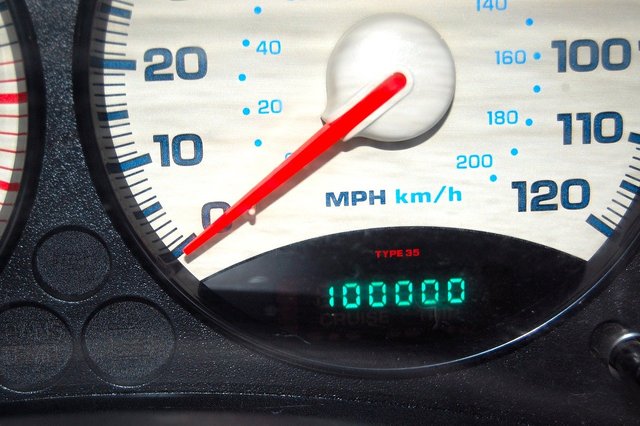
- Mileage: I would suggest you not consider any Toyota or Honda over 200g, and no Ford over 150g. I personally set the limit at 185,000 for all of them in search engines.
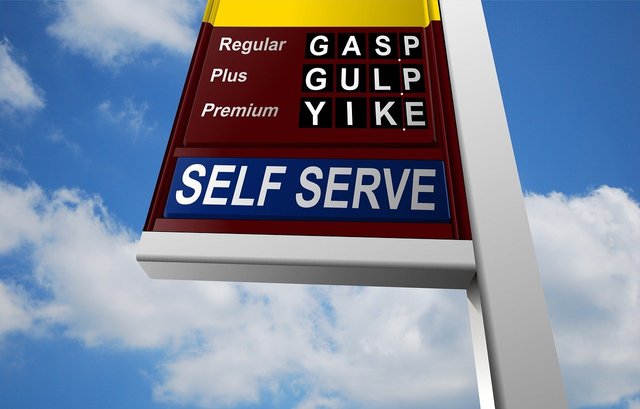
- Gas economy: If you're going to routinely drive a fair distance, look for cars that get at least in the high twenties for miles per gallon (MPG), preferably more. Don't expect them to get the MPG they got when they were new, and be wary of any seller who claims that a 15-year-old vehicle still gets the same gas mileage as when it was new! Some hybrids get in the 30s and 40s, even the 50s, and hybrids that employ auto-off idling (they immediately restart as soon as you want to drive again) actually get better mileage in the city than on the highway because they turn off the engine while you're stopped until you press the accelerator.
In line with that, I would suggest looking at phone apps and gas station deals that offer discounted pricing if you use them. For example, Circle K (CK), United Dairy Farmers (UDF) and Kroger all offer discounts (typically $.03/gallon) if you have their cards and may give you an initially larger discount to get you started:- CK requires that the card is linked to your bank account, so you actually use it to make payments while getting the discount;
- UDF's app and card don't require linking to your bank account, you can find out the prices of not only gas at nearby UDF stations but also items they sell, the app alerts you when they're preparing to raise the fuel prices (not all stations raise the prices at the same time), when there are free offerings, and more;
- Kroger Plus cardholders get a discount at the pump that is based on spending in their store. I've gotten up to $.20 off per gallon.
Alternatively, there are a few options for 3rd-party apps, such as Gas Buddy. I haven't had much luck with it because I had a lot of trouble getting the app to work and getting the card they sent me (to save money) registered, and it took them FOUR months to respond to my emailed requests for assistance, but it's just now functioning and I haven't actually used it to do more than find cheap gas prices and report prices for points that can be used to submit entries for their daily $100 free gas drawings. I have the card, but I've not used it.

Production year: This isn't quite as important as the physical condition of the car and engine; a car that isn't driven much but is well-cared for and kept in a sheltered parking spot (especially a private garage) may be quite old but still in prime condition. Some old cars are extremely durable and the rules for which old cars to look at are different than newer models. You'd have to do research on older vehicles to know what to look for. However, some things on older cars will need to be replaced - anything made of leather, cloth, plastic or rubber will be especially prone to decay.
Websites: I looked at a lot of websites to try to find a car and the ones with the best choices were Facebook Marketplace (by far) and Craigslist, but both have problems with scams. Other sites have better search functions but far fewer privately sold vehicles and far more dealer vehicles. Make sure, on sites that have it, to select private sellers only. One thing I didn't like on Facebook and some other sites was the difficulty of narrowing down the search, and there were several FB users who refused to comply with requests for the VIN, photos of the engine and interior (which may indicate it was a car parked somewhere that they can't actually sell), and uncooperative behavior, so I urge caution. Most of the websites I looked at, in fact, had weaknesses in the search functions available. If you want to be more careful, be sure to select "certified cars" and get a report on the VIN (via Carfax, KBB or other service). Some private sellers offer free Carfax reports, but most don't. A lot don't even understand why you'd want to run a check on the VIN!
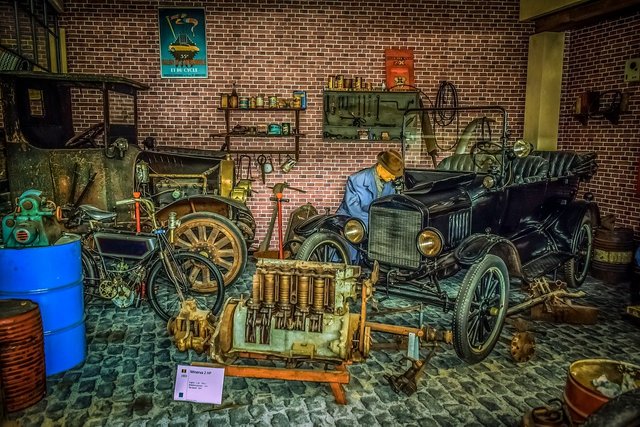
- Rebuilds It doesn't hurt to look at them - these are often cars that needed the engine replaced and/or other very expensive repairs. Sometimes rebuilt cars are a really good deal - other times the person who did it wasn't very skilled, so you really need to make sure a mechanic carefully looks it over. It'd be best if it's certified and/or has the Carfax guarantee.
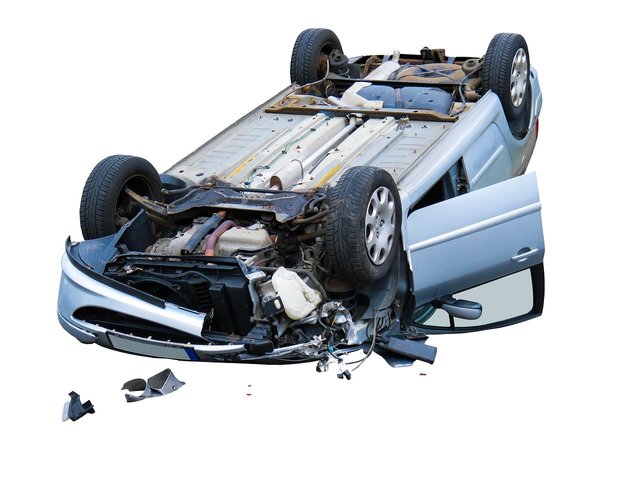
- Salvage: A car that was severely damaged (or damaged beyond the value that the insurance company assigns to it) is a total loss. It may be purchased by someone who likes fixing up cars, similar to a rebuild but starting not from a dead car but a damaged car that may or may not have been operational beforehand. These cars are higher risk because of frame/chassis and the undercarriage, and engine damage even if fixed by skilled mechanics. I would stay away from these unless you know a true professional fixed it, it's certified and guaranteed to be in great condition. And, of course, you should have a certified mechanic carefully inspect it - advise them the car was salvage/rebuilt. If you don't have a certified, highly skilled mechanic that you can trust, stay away from rebuilt/salvaged vehicles.
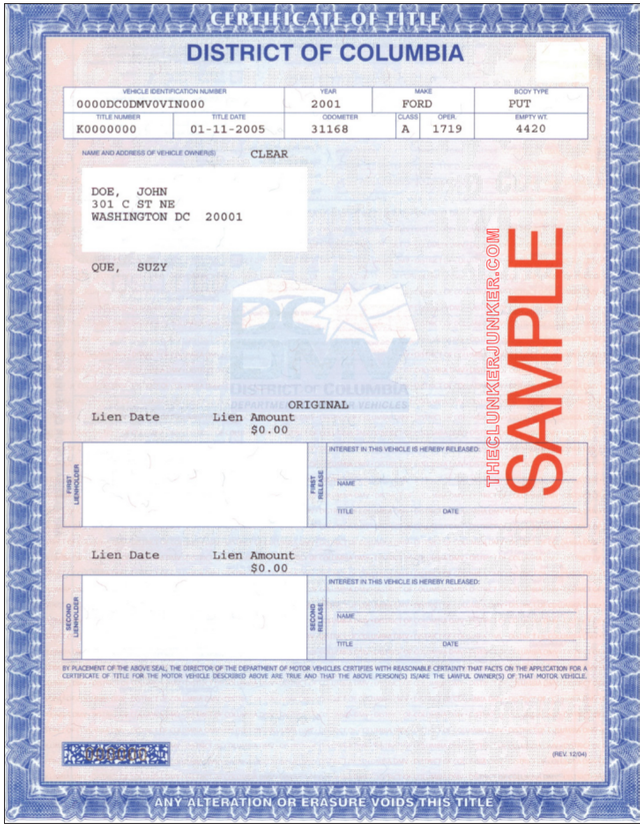
- Titles: There are criminals who present a car, with keys and title, but who don't own it. After-sale, they'll somehow regain possession of it and sell it to someone else because the title is a clever duplicate. I'm afraid I can't give any advice on how to detect this other than warning signs from behavior. Go with the seller to the department of motor vehicles, and keep an eye open for reports of duplicate titles when you do a VIN check.
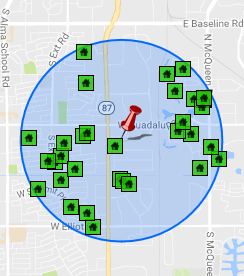
- Search radius: If you can get help from someone (such as a second driver for after a purchase), or don't mind spending a lot on rideshare/taxis, select a radius of at least 50 miles. If you'll be looking at vehicles in other states, be aware that the rules for the purchase may be different than in your state. This is America, after all, where each state is independent but attached.
- Another thing to be wary of is rental vehicles. Most people who rent vehicles don't care about the car since it's not theirs, so they'll treat it poorly and, sometimes even when a rental company does their best to keep their vehicles in top shape, bad problems result. Some rental companies are known for not taking care of their vehicles, so it's better off to steer clear of anything that used to be a rental vehicle.

Pre-visit check: Carfax reports give you very detailed reports on the car you have the VIN for. You'll usually have to pay for it, but it sure can save you a lot of money! If they offer it, or you're willing to pay, get it. It's not foolproof but it can help to learn things about the car before you decide to spend time going to see it.
Otherwise, ask the seller for the Vehicle Identification Number (VIN). Then check it at the following sites (or similar, if you want to use something else), to learn about the car. These reports may not be as comprehensive as a Carfax report but they're still useful if you pay attention. If they refuse to give you the VIN they're either paranoid or a criminal. I refuse to deal with someone who won't give their VIN. Unfortunately, states generally don't allow doing a search based on a license plate number, except for the DMV and the police (plus all the "homeland" spy agencies).- National Insurance Crime Bureau - This will tell you of any thefts and total loss of the vehicle. If you scroll down, it'll link you to Carfax (not free), and also provides links to other places to get more info on your car.
- VINFreeCheck gives you up to 3 complete reports per day, and after that the reports are basic. You can use either the VIN or valid license plate number (but a license plate check is illegal in some states, like Ohio). With a full report, you can learn about liens, thefts, salvage/rebuild, damage, accidents, repossessions, emission inspection results, issuance of/duplicate/renewals of titles, recalls, odometer records (there will be at least one, and should be one for every purchase/title transfer), the car's year, make, model, model type (trim level), country of production, vehicle usage types (personal, lease, fleet, etc.) and more. Pay attention to the results and, if you're not sure what's important, ask someone at the DMV or the police.
- Vehicle History will give you a report that is similar, but not as complete. I prefer to check NICB and this one before using VFC.
- You can also check the National Motor Vehicle Title Information System (NVMTIS) website for a report (not free).
If someone tells you that the report you're looking at (whether it's from Carfax, VFC, or NVMTIS) is wrong, be very wary. I found one person who had a lien reported (this often comes up), so he went to the BMV/DMV and had his title stamped "lien canceled". Another denied not just the past lien but also the original title location and other facts on the report, and turned out to be a scammer, so be careful. I had a lot of people either stop responding or just refuse to give the VIN with responses like "You don't need that," "You can get it off the vehicle when you're here," "The car is fine - you won't find anything wrong," and similar dodges. At the very least, it'll be a waste of your time and, at worst, you'll be robbed. True, some people are just paranoid but don't make that your problem. If someone won't cooperate, move on. For one seller who was really shifty, I actually got the address and inspected it quickly before we were supposed to meet. The seller had refused to meet anywhere but her home, wouldn't give the VIN, and had failed to reveal problems with the car. On top of that, the car was full of things that you'd expect wouldn't be in a car that's going to be sold. I bailed out of that meeting ASAP because it was clear that the person was dishonest!
When looking at the VIN report, consider anything on the report that bothers you, especially salvage/rebuilt titles, duplicate/replacement titles, theft, liens, existing recalls, number of owners. The rule of thumb is that the more owners there were, the more likely it is that it wasn't cared for correctly, which tends to be true because people tend to sell when their car has enough problems that they don't want to pay to fix it. You can tell how many owners by the number of "title issued" entries you see in the report.
You can't do this with private sellers as easily as with dealers, but search engines can sometimes dig up dirt on dealers and private sellers who often sell cars (they may be acting as the go-between, or they may buy, fix and sell cars). It definitely doesn't hurt to research dealers but always remember that they may pad their ratings by adding fake positive reviews.
I also had a few sellers on Facebook who posted only a couple of external photos with the doors, trunk and hood closed. When I finally asked for photos of the inside and engine, they ghosted.
Liens: If the seller can't prove that the lien has been canceled or paid, DO NOT BUY the car or you may be stuck paying the debt. Usually, proof can be had from the department/bureau of motor vehicles.
Recalls: If you think a car has recalls, or you want to know, call a dealer for that brand whom you trust and ask them to check your VIN. They should be able to tell you which recalls haven't been fixed for your car. Only official dealers can handle (without cost) recall repairs. This information should also appear when you get a Carfax or other VIN report.
Problems: Do not hesitate - ask what's wrong with the vehicle. Write down what they say.
When You Examine a Vehicle
VIN: Make sure the VIN matches what you were told, and that the title number matches the last one listed on the VIN report. The VIN is located on the dashboard very near the windshield. If it's obscured, tell the seller to expose it and check it right away. Don't be shy about this! You don't want a stolen car or a car with problems that a VIN report can reveal!
Photos: Should include all of the exterior, trunk, interior and engine compartment. Request further photos if need be. If they refuse, don't bother pursuing it. If the only photos are of the exterior without the doors, engine and trunk open, the car may not belong to the poster (i.e. a criminal transaction or robbery).
Problems: Ask them point-blank what's wrong with the car! A $1,500 car will have problems 99% of the time unless you get really lucky! In fact, expect to pay at least a few hundred in repairs. If they claim lack of knowledge of the car (e.g. they're selling it for someone else, they're reselling it, it's a scam) you'll have to troubleshoot if you know how. THEN, if you think the car is worth spending the time and money on it, do a pre-purchase inspection, which you should ALWAYS do with any car you're serious about. Oh, BTW, ALWAYS do a pre-purchase inspection. If the seller guarantees that the car is great, do it! Even if the seller's mechanic tells you the car is great - do the inspection! You'll regret it if you don't - I do!
Smoke:
You should ask the owner to start up the car while you stand looking at the tailpipe. Do this AFTER after it's been sitting and is cold because smoke doesn't necessarily come out of a hot engine, nor will it last long if the engine is already hot.
- Everyone knows that smoke coming out of the vents (maybe a bad heater core) or the engine (that could be from leaking oil, overheating, or other problems) is a bad sign, right?
- Well, it's also bad if smoke comes out of the tailpipe. White, blue or gray smoke that persists for more than a few seconds is an indication of engine trouble that may cost a lot to fix.
Smells:
- If you smell something sweet, then there's a leak in the coolant system (radiator, hoses, pump, etc.). Antifreeze has a green color and smells and tastes sweet but is poisonous.
- If you smell burning oil from the exhaust or while looking at the engine, and ESPECIALLY while sitting in the car, there is either an oil leak that's causing oil to burn on hot parts of the outside of the engine, or the engine is burning oil, which is usually expensive to fix because it requires that the engine be at least partially disassembled and cleaned (using vigorous scrubbing, special chemicals or steaming).
- If you smell something that you'd expect a person to be wearing (cologne, perfume, sunscreen, tanning oil and other scented products),
- and there's an air freshener, take it out of the car and wait until its smell is gone so you can tell what else might have a smell. It could be as simple as rotten food or animal waste, but it could be there to hide the need for a repair.
- but there is no air freshener, there's a pretty good chance that the car has a repair that the owner is trying to hide from you by masking the smell - like when a Ford dealer sold me an Escort with a busted heater core by covering the smell with coconut oil.
Visual Clues:
- Oil leaks are not hard to check out - check the outside of the engine to see if it looks clean or seems to have grunge on it. Look at the underside of the engine to see if you can see any drops of oil forming. Oil leaks are preferred to burning oil, but some oil leaks are expensive to repair.
- Was the oil changed just prior to your visit? They may be hiding something.
- If the car looks clean inside and out, inspect areas of the car that are harder to clean, such as in cracks, hard to reach parts near the seats, awkward locations of the body, etc.
- Look at the car from different angles for bumps, scrapes, dings, and paint color differences, and see if anything doesn't seem to be aligned with anything else - these are telltale signs of an accident.
- If you look at the door, a semi-pro paint job after repairs will usually be shown by at least a line of a different paint color on the inside of the door (when open), then there was probably an accident.
- If you look at the hood and trunk, you should see stickers placed by the manufacturer. If they are missing or painted over, the car was probably in an accident.
- How deep are the treads on the tires?
- If you can see Lincoln's forehead with the penny positioned so Lincoln is upright: you'll be replacing them sooner than later (depending on driving).
- If you can see all of his nose, it's advisable to replace them as soon as you can afford to.
- Both front and rear tires are important for your safety, but:
- if you can only afford 2 tires, choose a good brand and replace the front or rear tires (whichever are more worn).
- if they are all equally worn, replace the ones that are connected to the engine (front-wheel drive or rear-wheel drive).
- if you have one each (front and back) that are the most worn, buy two and ask the mechanic to rotate the tires to put on the two new ones and keep the 2 best ones.
- If they are different depths, or if a tire shows uneven wear, you'll experience problems in bad weather on that side, which can cause you to wipe out. In addition, uneven wear on a tire or tires may indicate more serious problems with the car - or at least the need for balancing and alignment.
- Uneven wear on a tire is an indicator of a problem, which could be underinflation, bad alignment, loose lug nuts, etc. You'll most likely have to replace those tires and find the cause. By uneven I mean that you'll see that the inner and outer sides of a tire are at different depths of wear.
- Make sure that they'll balance the tires and check the alignment.
- Do the tires show cracking, punctures or sidewall damage? Cracking may be due to age or because the tire(s) was left un(der)inflated for a long period of time. A bubble on the sidewall will eventually explode, rendering the tire worthless and possibly causing you to spin out, which happened to me once.
- I know this sounds crazy, but I know people who've lost a tire on the road because their lug nuts were loose (or loosened). This can lead to lug bolts being shorn off and serious damage. During an interstate drive in August 2019, the front tire of a semi-truck shot off across the highway! Fortunately, the truck's extra wheels saved that driver and the wheel didn't cause any accidents or damage to those of us who were shocked by that event! I have also met people who've told me about this happening to them - sometimes because they mounted a tire themselves and forgot to fully tighten the lug nuts.
- Do any of the tires look under-inflated? Take a tire gauge with you and check the pressure versus what the car's manual/manufacturer recommends (it may also be printed on the sidewalls of the tires).
- Ask your friend or the owner to try all the lights (front, rear, side, turn, emergency, reverse) one by one while you look. It may be as simple as replacing a burnt-out bulb, but it might be an electrical problem, too. You don't want to have to give hand signals when it's the coldest part of winter or raining heavily!
- If there is rust - where? Rust in some places is relatively unimportant, but if it affects functional and/or support areas, such as the door bottoms, the column between front and back doors, or the wells around the strut mounts in the engine compartment or trunk, that's bad. These are often not a cheap repair.
- Does a door seem to sag? That's a repair.
Look at the engine. You don't need to understand engines to understand these things:- Do you see any wires, hoses, etc. that are loose or not connected? That's not good but it may be an easy fix, or an attempt to hide a problem.
- Do you see any liquids (you shouldn't)?
- Is there white build-up around the battery terminals and clamps?
- Is there any part of the engine that seems to have a buildup of gunk, lots of rust, etc.?
Malfunctioning Instrumentation:
- If you notice that anything on the dashboard is intermittently working or not working, such as meters, buttons, A/C, heat, fan, radio, etc., that is cause for concern. It could be a wiring harness issue, the alternator, which charges the battery and provides power to all that stuff when the vehicle is turned on, is bad (usually multiple things will intermittently stop working), or similar electrical issues that may be very expensive to fix. A wiring harness replacement can easily cost you over $1,000, and replacing the alternator can cost hundreds!
Buttons, Dials, Knobs and Vents: Try everything.
- Anything that doesn't seem to do what it should do may indicate, at the very least, a blown fuse, and, at the worst, a big repair.
- Vents that have damaged louvres (the moving parts that allow you to direct the airflow) might be easily replaced by getting them at a junkyard if you have the tools and know-how to take them, but some cars may require disassembling the dashboard to do it.
Noises:
Belts aren't necessarily an expensive repair, and not the hardest to do, unless your car uses a timing belt.
- If you hear a sound only when you turn on the vent fan, then the blower's probably going to go bad.
- If it happens with the fan on or off, it may be the belt(s) that drives various parts of the engine, such as the A/C compressor, the alternator, etc.
- If it happens only when the A/C is on, then there's something wrong with the A/C's belt.
- If you only hear it when you turn the wheel all the way, then it's a loose or old steering belt, which isn't expensive.
- If you hear a click or thunk when you turn, then a strut is going bad. If, instead, you hear a grinding or sliding noise, the tire(s) may be hitting the wheel well, which could be because something was knocked out of alignment in an accident, or there is a suspension problem.
- If you notice a hesitation, grinding, clunking, rocking or other noises when the car (or you) is shifting gears, the transmission may have trouble. Tranny repairs are almost always expensive, typically starting at over $1,000!
- Screaming, clunking, whining, screeching, whistling, banging, popping, hissing and other noises are generally not things you should hear from a healthy car!
- Backfiring could be as simple as a loose component of the exhaust system, but it could mean a serious repair, too!
- A loud rumbling noise from the front may be an indicator that the start of the exhaust pipe is not firmly attached to the engine. If it's coming from the middle, the problem may be the same, but there. If it's from the rear, it could be the back end of the exhaust pipe or the muffler.
- When you open and close the doors, do you hear a sound of metal on metal?
Other things to consider:
- Does the car have enough doors to accommodate a baby seat if you need it? A 2-door really sucks for that!
- If you have large things you put in your vehicle, will they fit in this vehicle's front, back or trunk? I have a deep trunk but my Ford Focus really can't accept even a decent-sized office chair without me leaving the trunk open.
- Does it provide the gas mileage you need? If they claim it's just as good as the day it was made, and it's 10 years old, be wary!
- How good is its crash rating, safety test results, reliability report from consumers, etc.?
- How much does it cost to buy parts and do maintenance?
- Ask to see records/receipts for maintenance and repairs. Look at what was done and what was suggested but not done. Look at when things were last done, too. If a car hasn't had an oil change in over 5,000 miles, you may have trouble, for example.
- If it's got hydraulics for the trunk (especially on a hatchback or SUV), do they work correctly? Not really an expensive repair.
- If it's got auto-open/close doors, do they all work? If it has buttons instead of levers for adjusting seat positioning, does that work fully? Does the parking brake prevent you from moving the car in 1st gear? Does the car seem to slide when you hit a big bump (which could mean that the struts/shocks are going bad)?
- Does the car vibrate when you get it up to full speed on a freeway? That could be an alignment issue, a damaged tire rim, or unbalanced tires.
- If you have electrical locks, do they all work properly? Do the electrical windows work correctly? If you have other electrical devices, like a sunroof, rear wiper or defroster, are they fully functional?
- The heater may be slow to warm up in the winter, and the A/C may be slow to cool you down in the summer - that's normal, but it should only last a couple of minutes to correct itself - otherwise there's something potentially wrong.
- Check the car when it's cold as vehicles sometimes exhibit certain problems only when cold. Testing the A/C is difficult to do in winter, so be wary of winter sellers.
- If the vehicle bucks, shakes, trembles, hesitates or otherwise makes odd movements, you're going to pay for it!
- Do any doors stick open or shut?
- Do any locks stick when you turn the key?
- Don't take the owner's word for it and don't take excuses from an owner.
Try to get a price reduction, ESPECIALLY if you find an undisclosed problem!
When you go to look at the car:
- Don't carry the purchase money with you. Some criminals run scams just to rob you of it.
- Ask to meet somewhere public with lots of witnesses in case they're criminals (applies to both buyers and sellers). Don't do this at your home as it leaves you open to robbery.
- There should be a mutual arrangement whereby you provide assurance that you won't steal their vehicle if they don't go with you on a test drive (something important is usually expected, like your driver's license).
- When in doubt, walk away or go with the owner to a place YOU choose to do an inspection.
- Do NOT accept recommendations from the owner on where to take a car for a pre-purchase inspection!
- Ask about problems with the car. Watch for signs of stress or lying. They may reveal more if they feel cornered. If they say something different than what they told you before, they may be hiding other things and can't remember what they already said.
At the Time of Purchase
- Rules vary from state to state. Check the rules where you're buying AND where you live.
- The seller must sign over the title in front of a notary public (not beforehand!).
- Do NOT give your money until the seller has signed!
- You should sign the title at the DMV's title department, not before.
- Taxes are based on the sale price, fees are generally flat.
- If you're considering not keeping the car (you're not sure it's worth it or you plan to resell it), don't buy the title - just register the car temporarily until you have had it inspected or decide to keep it.
Buying a car can be stressful but, if you're careful and follow this advice, you stand a good job of knowing what you're getting and getting what you want! I wish you success!
If you appreciate this article, please 🏅upvote/like👍 , 🤩resteem/share
, 🤩resteem/share and share it to Facebook
and share it to Facebook , Twitter
, Twitter , Reddit
, Reddit , LinkedIn
, LinkedIn and wherever else
and wherever else you can!
you can!